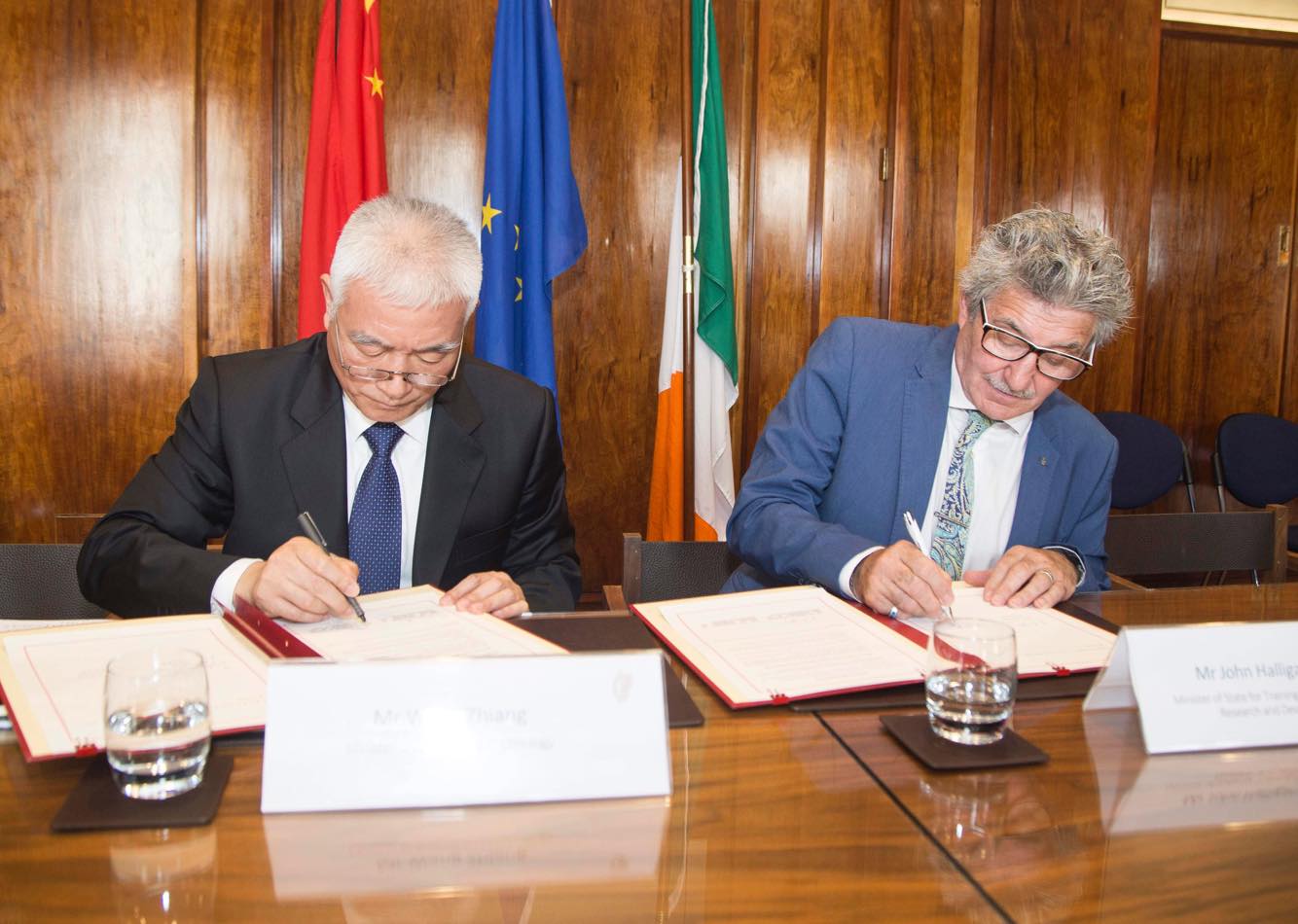Concerns have been expressed over partnerships between a number of Irish colleges, including Trinity, and Chinese universities accused of cybercrimes.
The research collaborations were signed off by John Halligan, The Minister of State for Training and Skills, and Wang Zhigang, Chinese minister for science. Science Foundation Ireland (SFI) and the National Natural Science Foundation of China plan to work together on eight research projects, which Halligan argues are of “strategic importance” to both Ireland and China.
Trinity has been paired with Tsinghua University, a state-owned institution, to conduct research into artificial intelligence (AI). Tsinghua has previously been linked with cyber-attacks and digital espionage in India and towards the Alaskan state government, as well as against major organizations such as the German company Daimler and the United Nations (UN) in Kenya.
Fianna Fail spokesman on defense, Jack Chambers, has spoken out against the government’s decision to sign off on this collaboration, stating: “The minister [John Halligan] has blindly announced this without providing clarity on the oversight from a security perspective. It is alarming that this has raised no red flag or received more in-depth security input. It is another example of the Irish government’s dysfunctional approach to cyber-security in the 21st century with the cyber-unit in the Department of Communications providing little strategic input.
“Cyber-security and defence continues to be viewed, naively, as an IT management issue by the mandarins and ministers, when it should be a strategic security and defence component for the Irish state.”
Head of nation-state threat research and Director of Strategic Threat Development at threat intelligence analysis company, Recorded Future, Priscilla Moriuchi has spoken out on the issue, stating: “The realities of jointly working on advanced technology projects with Chinese state-run universities is that the researchers and universities do not ‘own’ their findings in the manner that western researchers and universities control theirs,” she said. “These universities are part of a larger system which is utilised by the government to support their national security goals.
“Certainly not all Chinese researchers are tools for the communist regime, and they should not be prejudiced or discriminated against just because they are Chinese.
“However, these researchers are cogs in a larger authoritarian system which has demonstrated a willingness to use technology innovations to monitor, exploit, and repress political opponents.”
Moriuchi has also specifically spoken out against Tsinghua University, as she believes that they, as a state-owned institution, may have ties to state organizations that have previously stolen United States technology. Moriuchi said: “It is not clear whether individuals at Tsinghua are assisting the Chinese government in conducting cyber operations, or whether the university infrastructure has been co-opted by the state as a cover.”
Moriuchi also stated that, “In the case of artificial intelligence and unmanned vehicles, both technologies have direct application to projects within the People’s Liberation Army [PLA], and are key technologies in which China has documented national interest. Theft of intellectual property aside, we believe the Chinese government will likely be interested in any joint projects within these topics, and will work behind the scenes to assure the PLA has access to any significant findings or technological advances. This process will likely be unknown to the Irish side and possibly even to their Chinese counterparts.”
Director of international security studies at the Royal United Services Institute in London, Raffaello Pantucci, has advised caution on criticising the partnerships, highlighting that not all Chinese researchers are spies and that the technology being researched and developed through these international collaborations does, in fact, have both civilian and military purposes.
The Department of Business, Enterprise and Innovation and the SFI have confirmed to The Times that they did not seek advice from the Irish security services or the military, who have expressed concerns over Chinese intelligence services, prior to signing off on the upcoming collaborations.






